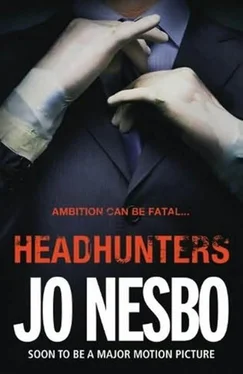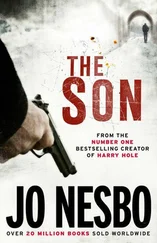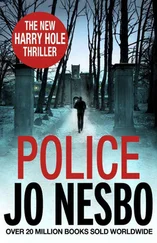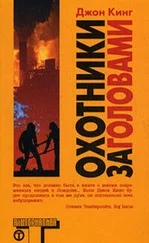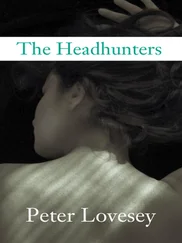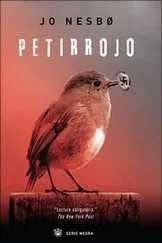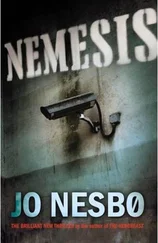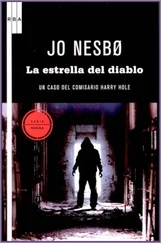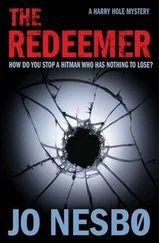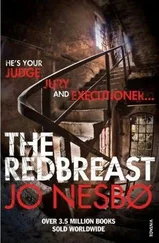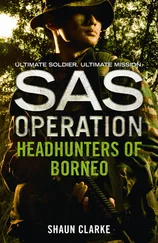‘Don’t!’ Greve screamed.
I raised the weapon.
Greve fired. The explosion filled the room.
I pointed my gun at Greve. He had half risen to his feet in the chair and loosened off another round. I pressed the trigger. Pressed it all the way. A hoarse roar of lead tore through the air, Ove’s walls, the chair, Clas Greve’s black trousers, the perfect thigh muscles beneath, tore open his groin and, I hoped, his genitals which had been inside Diana, his well-developed abdominal muscles and the organs they were supposed to protect.
He fell back in the chair and the Glock thudded to the floor. There was an abrupt silence, then the sound of a cartridge rolling over the parquet. I angled my head and peered down at him. He returned the look, his eyes black with shock.
‘Now you won’t pass the medical for Pathfinder, Greve. Sorry about that. You will never steal the technology. However thorough you are. In fact, that bloody thoroughness was your undoing.’
Greve’s groan was barely audible, something Dutch.
‘It was the thoroughness that tempted you here,’ I said. ‘To the final interview. Because do you know what? You’re the man I’ve been seeking for this job. A job for which I not only think but know you are perfect. And that means the job is perfect for you. Believe me, herr Greve.’
Greve didn’t answer, just stared down at himself. The blood had made the black roll-neck even blacker. So I went on.
‘You are hereby appointed as the scapegoat, herr Greve. As the man who killed Ove Kjikerud, the body lying next to me.’ I patted Ove on the stomach.
Greve groaned again and raised his head. ‘What the fuck are you babbling on about?’ His voice sounded desperate and at the same time groggy, sleepy. ‘Ring for an ambulance before you murder someone else, Brown. Think about it, you’re an amateur, you’ll never get away from the police. Ring now, and I’ll save you, too.’
I looked down at Ove. He seemed peaceful where he lay. ‘But it’s not me who will kill you, Greve. It’s Kjikerud here, don’t you understand?’
‘No. Christ, ring for a bloody ambulance now. Can’t you see I’m bleeding to death here!’
‘Sorry, it’s too late.’
‘Too late? Are you going to let me die?’
Something different had crept into his voice. Could it have been tears?
‘Please, Brown. Not here, not like this! I implore you, I beg you.’
It was tears indeed. They streamed down his cheeks. Not that strange perhaps, if what he had said about being shot in the stomach was correct. I could see blood dripping from the inside of his trouser legs onto the polished Prada shoes. He had begged. Had not been able to maintain dignity in death. I have heard it said that no one can, that those who appear to manage it are just emotionless from shock. The most humiliating part for Greve was of course that there were so many witnesses to his breakdown. And there would be more.
Fifteen seconds after I had let myself into Kjikerud’s house and entered the sitting room without tapping in ‘Natasha’ on the alarm, the CCTV cameras would have begun to record as the alarm went off at Tripolis. I formed a mental image of how they would have flocked around the monitor, how they would have stared at the silent film in disbelief, with Greve as the only visible actor, seen him open his mouth but would have been unable to hear what he said. They would have seen him shoot and take a hit, and cursed Ove for not having had a camera that showed the person in bed.
I looked at my watch. Four minutes had passed since the alarm had gone off, and, I presumed, three minutes since they had phoned the police. They, in turn, had rung Delta, the armed unit that was used on stake-outs. And whom it took some time to assemble. Tonsenhagen was also quite some distance from the centre. Assumptions of course, but the first police cars would hardly be here in less than, at best, a quarter of an hour. On the other hand, there was no reason to let this drag on. Greve had fired two of the seventeen shots in the magazine.
‘Alright, Clas,’ I said, opening the window behind the headboard. ‘You can have a last chance. Pick up your gun. If you can shoot me, I suppose you can ring for an ambulance yourself.’
He stared at me with empty eyes. An icy cold wind swept into the room. Winter had arrived, no question.
‘Come on,’ I said. ‘What have you got to lose?’
The logic of this seemed to penetrate his shock-addled brain. And with a swift movement, much swifter than I had believed possible with the injuries he had, he threw himself sideways to the floor and grabbed the gun. The bullets from the machine gun, plumbum , the soft, heavy, toxic metal, gouged up splinters from the parquet floor between his legs. But before the spray of bullets reached him again, before it swept across his chest, pierced his heart and punctured both lungs, causing him to wheeze his last, he managed to fire one shot. A single shot. The sound quivered between the walls. Then it was quiet again. Deathly quiet. Only the wind sang its low song. The silent film had become a freeze-frame, frozen in the cold temperature that seeped into the room.
It was over.
PART FIVE Last Interview One Month Later
THE SIGNATURE TUNE of the news programme News Tonight was a simple guitar riff reminiscent of a bossa nova, swaying hips and colourful drinks, not hard facts, politics and depressing social problems. Or, like this evening, crime. The tune was brief in order to signal that News Tonight was a programme without unnecessary frills, it dealt with the nitty-gritty and went straight to the point.
That was presumably why it started with the jib camera in Studio 3 that showed the evening’s guests from above, then swept down to finish with a head shot of the presenter, Odd G. Dybwad. As the music stopped, he looked up from his papers and removed his reading glasses. That had probably been the producer’s idea; he or she might have thought it gave the impression that the news item they were going to discuss was hot off the press, so much so that Dybwad had only just managed to read it himself.
Dybwad had short, thick hair which was greying at the temples and one of those fortyish faces. He had looked forty when he was thirty and forty now that he was fifty. Dybwad had majored in social sciences, was analytical, verbally bright and by predilection tabloid through and through. It was probably not this attribute that had been decisive in the channel controller’s decision to give him his own talk show, but rather the job Dybwad had been doing as a news anchorman for half a human lifetime. By and large the task had been to read aloud prepared texts with the right intonation and facial expression, dressed in the right suit with the right tie, but in Dybwad’s case the intonation, the expression and the tie had been so right that it had given him more credibility than any other living person in Norway. And it was credibility that was needed to carry a programme like News Tonight . Strangely enough, publicly stating several times that he loved his ratings and that at editorial meetings it was he, and not the channel controller, who pushed for the most commercial news items just seemed to reinforce Dybwad’s impregnability. He wanted to have slants with the potential to create heat and stir emotions, not doubts, nor a variety of views and debate. That was best managed by newspaper feature articles. His stock response was: ‘Why leave discussions about the royal family, homosexual foster parents and welfare abuse to frivolous media operators when we can have them on News Tonight ?’
News Tonight was an unqualified success and Odd G. Dybwad a star. So much of a star that after an extremely painful and extremely public divorce he had been able to marry one of the channel’s young female stars.
Читать дальше
